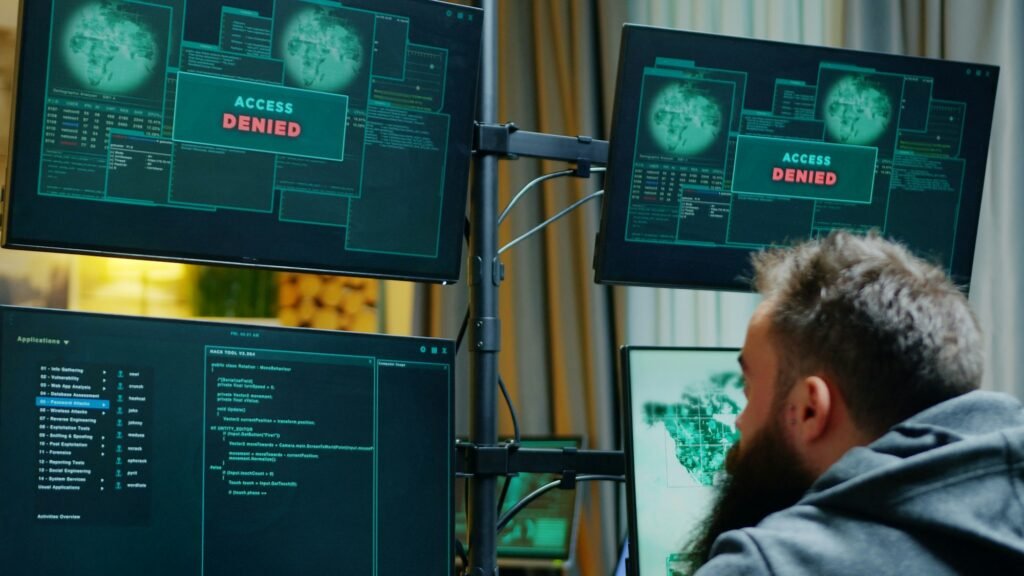Criminal Law and Technology: Tools for Modern Defense Attorneys
Criminal Law and Technology: Tools for Modern Defense Attorneys
In the rapidly evolving landscape of criminal law, technology has become an indispensable ally for modern defense attorneys. As the legal field becomes increasingly digital, understanding and leveraging the latest technological tools can be a game-changer for defense attorneys aiming to deliver the best outcomes for their clients. This article explores how technology is revolutionizing criminal law and the essential tools every modern defense attorney should consider adopting.
Understanding the Intersection of Criminal Law and Technology
Criminal law has traditionally relied on the expertise and intuition of seasoned attorneys. However, with the advent of technology, defense strategies are more data-driven and efficient. This intersection of criminal law and technology not only enhances the capabilities of defense attorneys but also reshapes how cases are approached and managed.
Key Technologies Enhancing Criminal Defense
-
Digital Evidence Management Systems
- Efficient management of digital evidence is crucial for modern defense attorneys. Systems such as eDiscovery tools allow legal teams to organize, review, and analyze large volumes of digital data, ensuring no crucial piece of evidence is overlooked.
-
Forensic Software
- Forensic software tools like EnCase and FTK enable attorneys to perform in-depth analysis of digital evidence. These tools assist in uncovering digital footprints and can be pivotal in establishing a client’s innocence.
-
Artificial Intelligence (AI)
- AI-powered tools are becoming increasingly prevalent in criminal law. From predicting case outcomes to automating document review, AI enhances efficiency and accuracy. Predictive analytics can aid in understanding case trends and developing more robust defense strategies.
-
Virtual Reality (VR)
- VR technology is being used to recreate crime scenes, providing juries and judges with immersive experiences that traditional photographs and videos cannot offer. This can significantly impact the understanding and interpretation of the events surrounding a case.
-
Blockchain Technology
- Blockchain’s tamper-proof nature makes it an excellent tool for verifying the authenticity of digital evidence. It ensures that data has not been altered, thereby maintaining the integrity of evidence presented in court.
The Benefits of Technology for Defense Attorneys
Improved Efficiency
Technology streamlines various aspects of legal work, allowing attorneys to focus on formulating strategies rather than getting bogged down by administrative tasks. Automated document management systems reduce the time spent on paperwork, while AI algorithms handle data analysis, enabling quicker and more informed decision-making.
Enhanced Communication
Modern communication platforms facilitate seamless collaboration between legal teams and clients. Secure messaging apps and cloud-based systems ensure that sensitive information is shared safely, enhancing trust and transparency.
Cost Reduction
By automating routine tasks and improving workflow efficiency, technology reduces the cost of legal proceedings. This is particularly beneficial for clients who may not have the resources for protracted legal battles.
Strengthened Defense Strategies
Access to a wide array of digital tools allows defense attorneys to build stronger, more compelling cases. Whether through the use of forensic tools to analyze evidence or AI-driven insights to predict case outcomes, technology equips attorneys with powerful resources.
Challenges and Considerations
While technology offers numerous advantages, it also presents challenges. Defense attorneys must remain vigilant about cybersecurity risks, ensuring that sensitive data is protected from breaches. Additionally, staying current with rapidly advancing technologies requires ongoing education and training.
Conclusion
The integration of technology into criminal law is transforming how defense attorneys approach their work. By embracing these tools, attorneys can enhance their efficiency, reduce costs, and develop more effective defense strategies. As technology continues to evolve, staying informed and adaptable will be key for attorneys aiming to provide top-tier legal representation.
Keywords: Criminal Law, Technology in Law, Modern Defense Attorneys, Digital Evidence, Forensic Software, AI in Law, Virtual Reality, Blockchain in Legal
By focusing on these aspects and incorporating relevant keywords, this article serves as a comprehensive guide for understanding the role of technology in modern criminal law, ensuring it is optimized for search engines and beneficial for readers seeking insights into this dynamic field.































































































































